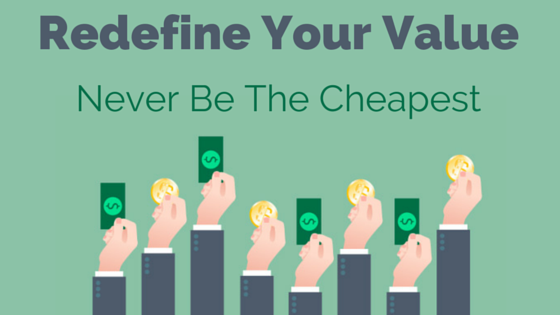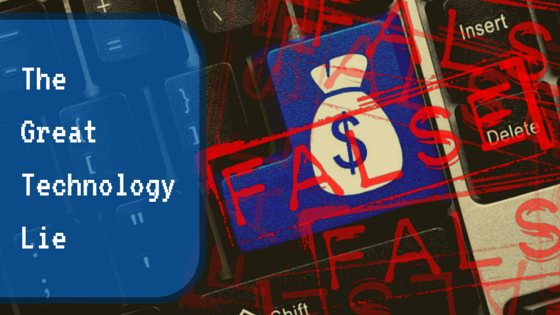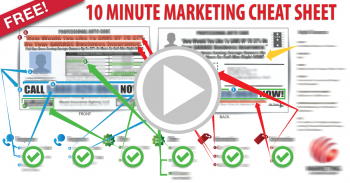Category Archives for Business
Marketing MVP? Your Client
I talk a lot about value—how to value your time, and create value for your clients and customers. What about asking clients how much they value you?
In my business, I work with entrepreneurs to grow their profits. Through sound strategy, direct marketing, and business automation, I help each client grow their business to make the money they want. Sound good? A big part of that is working with your most valuable resource—your customers.
How to make your client your most valuable player
Your customer buys your product or your services. They are also your best marketing resource.
Beyond their patronage, consider the essential services your customer can provide to you:
Feedback: When you establish a working relationship with a client, ask them for feedback on your services and products. What works? What doesn’t work? Everyone likes to be asked their opinion and no one—not even you—knows your product better than those who are paying for it. Think about these tips:
- Ask: If customers seem disgruntled, or a service does not sell—take a trusted client to lunch and ask why? In my car repair business, I learned more from watching—and asking—my customers than any other sales method. Small business owners who are afraid to ask for gut-level feedback from their customers are afraid of what they might hear.
- Listen: Your client holds the key to your success—they know what they want, and they will tell you. They know what does not work for them, and they will tell you. Comments in the form of feedback cards, customer satisfaction surveys, and personal outreach let you know what is, and what is not, working with your business.
- Learn: No market analysis offers better insight than customer feedback.
Referrals: A referral from a client cuts your sales cycle in half. A huge part of getting new business is gaining the trust of a potential lead. Cold calls take time, finesse, and sure skill to warm a prospect to the point where they are willing to meet you. A client referral opens the door and invites you into the association of a previously existing relationship. Consider these tips:
- Fear: Asking clients and customers for referrals is a learned skill. Few small business owners are comfortable asking their clients to refer business to them. Remember, when you offer top-notch services and products to clients, it is okay to ask them to be your advocate.
- How to ask: There are many ways to ask for business referrals. When a sale is complete, or a service provided, ask your client if they would mind referring you to business associates who might need your product.
- Reach out: Use social media to ask clients to refer you to others, or to join your LinkedIn network. Post links for clients to leave feedback, or enable them to write reviews on your website.
- Appreciation: Thank all clients who offer referrals. While a personal thank you is nice, a small bonus—gift card, service, or subscription—all go a long way to letting your client know you appreciate their confidence in you.
Turning mistakes into gold: Blunders, foul-ups, and mistakes—they happen to everyone. It is true that a happy customer tells one friend while an unhappy customer tells ten. With the right technique, you can turn that unhappy customer into an ally who tells ten friends how well you handled their situation. Here is how:
- Awareness: Be sure you have multiple channels for clients to provide feedback to your business. Train staff to recognize and respond to customer concerns. Empower managerial and other staff to rapidly and respectfully step forward to help.
- Active listening: Listening to customer complaints and concerns is a big part of customer service. Whether you personally handle the complaint, or it is managed by your staff, ensure the disgruntled customer is given fair time to explain their beef with your business. Willingness to spend time with an unhappy customer gives nonverbal feedback that their problem is important to you.
- Comprehensive response: Real skill is needed to assess and respond to a customer complaint. A “make it right” attitude must be echoed by your actions. Whether it is deeply discounting or waiving the bill, personally walking the customer through a process to ensure they are satisfied, or asking them straight out what they feel is fair—sensitively and thoroughly responding to an angry customer with a legitimate complaint makes a friend out of a potential foe.
- Social media: Monitor your social media channels to respond to Twitter, or Facebook comments about poor service. Be clear that you care and will work with your customer—you will earn new business from it.
These are only a few of the ways your own customers can shorten your sales cycle and keep your business successful. They work in my business, and I know they will work in yours.
When you want to know about client satisfaction and building value that pays off for you, call me at 585-633-7563.
To your success.
Bob Britton
Why Likeability Matters To Your Small Business
I like people. I like to work with people, do good business, and help where I can. If I am lucky, other people feel that I am likable, too—because it matters to the success of my business. Regardless of what kind of business you are in, being likable matters.
Each person has their idea of ‘likable’. Basically, likability is about what you would expect—friendly, engaging, curious, mindful, interested, and interesting. For small business owners, the personal touch matters, and getting your message across means reducing the immediate barrier of first impressions. It all starts with a smile.
Increase your “likes” with these four tips
As an entrepreneur, you know that success is built on a good idea, sound structure and marketing, financial ability, and advanced organizational skills. A big company is largely considered faceless, but one key advantage of small business owners is that they are the faces of their companies. That personal touch can be the difference between success and failure.
To make a deal to sell your goods and services, or buy those of another, demeanor counts. Anyone who has watched Shark Tank knows the Sharks intend to eat you alive – warm and fuzzy is not on the menu. But the reality show is intended to sell ratings, and that it does. In the real world, you have to sell your product—and yourself. So how can you improve your delivery?
Let’s take a look at some keys to presenting a congenial face to your clients and potential clients:
1. What is on the inside? Unless you are a good actor—and you may be—it matters how you feel about your business, your day, and the person sitting across the table from you. There is plenty of research about the psychology of body language and facial expression. While you can practice your firm handshake, relax your voice, and be sure your arms and legs are not crossed, authenticity is your biggest selling point. Humans got to the top of the food chain for good reason – we are born observers who not only passively intuit, but actively watch contextual clues like gesture, eye and facial expression, and body position. Do your best, and be your best. It gets you further than a slick dose of “fake it till you make it.”
2. Empathy matters: Empathy is a higher level human skill. Unlike sympathy, empathy is the ability to genuinely understand and share the feelings of another—even if you have not been in their shoes. Empathy goes a long way to making you likable. No person can be positive, jazzed, and ready to roll at every minute—but they can be empathetic. You may meet someone having a tough day—or a rough couple of years. Do not paste on a smile, tolerate a couple of minutes, and then shift the conversation your way. I am going to go out on a limb here and say, let your client, or customer, talk. Even if they spend time discussing a personal matter of great importance to them—let them talk. People with real empathy are good listeners, and somewhere in there, you will hear what you need to know about this person to help you make your sale.
3. Curiosity: Curiosity is seductive. I find there are few people who do not want to talk about their business. Ask the right questions and scaffold the discussion on those answers. It goes a long way toward likability—and makes you a trusted business connection. I have said it many times before—you need to learn what your customer wants before you can offer it to them. If you are curious about their ideas, vision, and history, they will feel as if you understand them. Being curious about their business also lets you create the perfect pitch based on the free information they just provided.
4. Help first: Remember the slogan, “Commit Random Acts of Kindness”? It is good idea. Create an opportunity, open a door, pass along a contact name—help someone out each day. Being a consistent, trusted resource for others makes you the “go-to,” a highly valued individual inside and outside of your business community. Reach out to others to widen your own network. Not asking for reciprocal favors gives you real power.
There are many tactics, tips, and cues you can use to improve how others perceive you. As a small business owner, genuine interest in others is attractive to those seeking what you have to sell.
Start your day with a smile, and start each phone call the same way. Even when others cannot see you, a smile generates a different business environment for your conversation—one that is…likable.
For entrepreneurs, it is easier to attract the success and income you want, when you feel positive about your direction, and your marketing. When you need sure-fire ideas and a rock-solid business plan, call me at 585-633-7563.
To your success!
Bob Britton
Small Business Success: Taking Advantage of Where You Are

Recent headlines reveal an uptick in the economy for small business owners. If the economy is improving, isn’t this the time to get smart about creating success for you and your business?
In May, the National Federation of Independent Business (NFIB) released its small business employment report. The survey reflects feedback from small business owners like you. Some key points of the report include:
- Employment is up: Twenty-seven percent of small business owners who responded to the survey said they are having some difficulty filling job openings for qualified workers.
- Economic indicators: NFIB evaluates on ten criteria, including credit conditions, job openings, and capital outlays. Upward trends are seen in nine of those ten indicators.
- Business optimism: The Small Business Optimism Index rose 1.7 points, the highest since December of last year.
Does this mean the business climate is the best ever? No. But it does mean you have a fighting chance of making it the best business climate for you—and your company.
Why are you here?
My job is to help my clients develop a structured, creative mindset and business plan. It takes both to achieve success as a small business.
Success means something different to each business owner, but for me, it has to do with using your time to do what you love, and what you are good at. Success gives you a chance to offer value to clients, customers, and employees in a way that sustains your business—and your vision for your life.
Entrepreneurs have reasons for being where they are. Small business owners work hard to define what they have to offer, and what they hope to earn. Business owners usually get into their line of work for motives that include:
- Taking charge: Most small business owners want to create and run an enterprise under their control. That enterprise looks different for each entrepreneur. Technically, a small business is a company employing 500 or fewer employees. Whether working as individuals, or in groups or teams, most business owners hope to create maximum financial success on their own terms. As Abraham Lincoln said, “The best way to predict your future is to create it.”
- Pursuing a passion: For many people, career choices are innate. During early, or mid-career, there comes a moment of realization when you know what you want to do, and how you might do it. The proclivity toward a particular field might be so strong that it is impossible to ignore. For others, years spent working in one area, then another, builds toward an obvious decision to create a small business.
- Taking risks: Owning a business is generally not for the timid or those unable to handle change. Depending on your industry, the small business model gives entrepreneurs mobility that larger companies do not have. Taking a chance to succeed—or fail—helps small business owners learn and build confidence. When the now-defunct anonymous social app, Secret, was shuttered in April, co-founder David Byttow ironically noted, “I believe in failing fast in order to go on and make only new and different mistakes.”
- Choice: When your name is on the paychecks, you have more risk—and more choice. Do you want to keep your business small or grow it larger? Take advantage of new tech or different social media funnels? Retire in 20 years or five? Take that vacation you promised your family? Risk confers choice, and when you make good choices about building and maintaining your business, you get to live life the way you want.
How to get where you want to go in business
Everyone wants to make money doing what they love—but most people need help to get there.
Most people believe small business ownership means a long struggle to succeed. Part of that is true. Only about a third of small businesses launched in any year will survive for 10 years.
The economy is improving and you already own a small business—or maybe you are just starting out. How do you improve your odds?
The mandate of my company is to help yours. From the big picture to the small details, I help you understand the real meaning of value—of your time and your product. Instead of working harder, our group helps you work better in ways that include:
- Investigate and revise your big picture
- Relieve the frustration of being overworked and underpaid
- Understand the worth of your own time and what else you can offer to customers
- Understand the secrets of building a responsible, capable workforce
- Learn technology and marketing methods to serve your goals
According to one survey, leading strategies for small business growth in 2015 include:
- Improve and expand your client base through better customer service
- Reach out to new customers
- Bolster your bottom line by offering new products, or seek new markets
It’s a great time to be an entrepreneur. When you want to thrive—not just survive—as a small business owner, call me at 585-633-7563.
To your success,
Bob Britton
In the Marketplace: Never Be the Cheapest
In the marketplace, there are three price spaces you can occupy—the cheapest, the middle ground, and the most expensive. Take it from me, never be the cheapest vendor in your marketplace.
Price is a dynamic factor in small business success. As I discussed in a recent blog, charging more—not less—is essential for business stability. Along with that is taking control of your position in the marketplace.
No formula for success: cheap, cheaper, or cheapest
Entrepreneurs who reactively position their business in the marketplace lose control of their message, their product, and their profit. Why? I’ll tell you.
It is not just new entrepreneurs looking to break into the market who price their products and services too low. Small business owners hang on to inappropriate pricing structures for years. When fear drives your pricing behavior, the outcome looks like this:
- Deep discounts
- Price haggling or lowball bids
- Unrealistic cost and expense accounting
- Pricing that responds to external factors instead of internal decision points
- Low wage and almost no profit
- Inability to grow business or add value
For almost all small business owners, occupying the cheapest niche in the marketplace is a bad place to be. The only time this strategy works is when you can realistically obtain good profit by undercutting the competition. Typically, the success of this tactic is of short duration and not for owners interested in building out their business.
The view from the middle: no end of competition
Some small business owners seek the middle ground. When the bids come in, or a customer browses your product, your prices are not the cheapest—nor are they the highest. This is a sweet spot for many clients and consumers if the buzz about your products and services is good.
But is this where you really want to be? Consider the view from the middle:
- Your pricing formula must remain fluid, depending on the season, the client, and the project.
- Sales personnel must be ready to lower prices, or cut a deal, when a potentially valuable customer threatens to walk. Keep in mind—they may walk, anyway.
- Frustration is the condition of the middle. You are constantly competing with everyone in that space—and most businesses are in that space.
- Profit margins are thin because everyone is price cutting to get the business.
- Like the cheapest vendor on the market, your prices must stay reactive, you do not see much profit, and you work very hard for whatever you get. It is not easy or guaranteed that you can grow your business from this position.
If you choose to be either the cheapest on the market, or the average business, there will always be someone willing to provide the service, or the product, for less—even if it eventually drives them out of business.
Middle ground entrepreneurs satisfy themselves thinking slow and steady wins the race. It doesn’t. Slow and steady too often means undercapitalized, which is a prominent reason for small business failure.
My clients are small business owners interested in making more money. It is my job to evaluate what they are doing, and how they are doing it. My ambition is to make my clients millionaires. They do not do this by working harder—they do this by working smarter.
Top tier: how do you get there?
Small business owners who work in the trenches of cheap and cheapest do not have control of their businesses—or their future. Overwhelmed, undervalued, and underpaid, you may sign the checks, but your blood pressure and debt load is giving you a different message.
I am here to tell you that you are not alone and you can succeed. But you cannot have the business—and the life you want—without change. And that starts with realistically resetting your price points by defining your own value.
Let me tell you a story. When I was running my car repair business many years ago, we were charging 20 percent more than even the local car dealerships. That 20 percent let me do more for my customer than other repair shops. The result? I could offer advantages, like free loaner vehicles—a perk that worked—and increased my business and client loyalty.
The take-home point is that meaningful value sells. It is not just a mind game of charging more, of mark-up as make-up. It is offering real, calculable value where your customer needs it most. Trust me—charging more lets you offer more value.
Charging higher prices for valuable services results in business conditions that look something like this:
- Growth and pricing goals are set and met
- Sales and service personnel take on more responsibility
- You get to focus on what you do best—and living the life you want
Sound good? That’s because it is good—and there are small business owners just like you redefining their prices, their value—and their lives—every day.
When you are ready to take control of your business, bump your sales, and take a long lunch without guilt—call me at 585-633-7563. I will help you get there.
To your success,
Bob Britton
Charge More—Not Less—Than Your Competitors
Pricing plays a pivotal role in small business success. Here is a free tip—charge more than your competition.
I can almost feel your anxiety. If you charge more for your products or services, you lose customers, market share—and maybe your shirt. Right? Maybe not. The key is to shift your thinking, and the perspective of your client, away from price as the deciding factor for a purchase.
The premium perspective
Even during the recent economic downturn, luxury items and brands consistently outperformed low-priced goods aimed at the thrifty.
A sharp illustration of this concept is the re-positioning of Apple as a luxury brand. Instead of using its standard release channels for its new device, the Apple Watch, Apple followed the lead of luxury brands, inviting customers to preview the device by appointment. The base model starts at $350. Go for the gold version and pay upwards of $10,000.
Apple has always positioned itself as offering high value. While Apple will initially sell fewer units of its watch—they are priced to return a higher profit.
The cost of doing business
Instead of considering cost structure, many entrepreneurs look at what competitors charge to determine their own pricing. Here are a couple of reasons why that is a bad idea:
- While learning what your competitor charges is important, you have no idea what their selling price is actually costing them.
- It is certain there are competitors able and willing to undercut your selling price.
- If you sell the least expensive widgets on the market, you need to sell a lot of widgets.
- Why battle competitors to earn less?
Price wars keep small business owners from turning a decent profit or building enough positive cash flow to offer better services. Along the way, the time and money needed to create a thoughtful marketing approach never materializes. In any business, rock-bottom prices attract bargain hunters who remain loyal—until they find a better deal.
Refocus on value—start a conversation
An accurate cost structure is essential to price your products or services.
I work with entrepreneurs to understand their real costs. Not surprisingly, most small business people low-ball the worth of their own time. Setting higher prices to respond to your cost structure and the profit you want to make liberates you to provide extra value to your customer.
Because of their size, small businesses can usually out-maneuver bigger competitors by providing customized service and rapidly responding to the real-time needs and problems of their customers. Consider these B2B and B2C marketing points when creating a conversation about value rather than price:
- What is the issue? When you talk to a potential client, or a current customer, ask open-ended questions about their business issues. Take note of how you can leverage your current services to meet their needs, and combine those with ideas, or other resources, to help them resolve their issue.
- Offer expertise: By offering your time in exploring their questions or concerns, you offer expertise instead of a hard sell. Discuss dollars in the context of the scope of their problem—pivoting the discussion away from the cost of your product to the expense caused by the problem. By guiding the customer toward real solutions that may or may not have a payoff for you right now, you make a lasting impression as a trustworthy, reliable, business ally.
- Go the extra three miles: Offering time, education, and expertise to solve a business problem adds value to your services. By building a partner-based, rather than product-based relationship, your customer is likely to buy what you have to offer—repeatedly.
Value is an intangible that has different meanings for consumer and entrepreneur. I know a lot of small business owners that offer tremendous help to customers, but make two critical mistakes:
- Recognition of value: They do not factor their time and expertise into their cost because they do not recognize it as part of their products and services.
- Utilization of value: Since they do not recognize that worth, they miss out on golden opportunities to market and promote their own value.
When you charge more for your service—or your products—you differentiate yourself and your business. When I meet with business owners, we spell out their services and refine their marketing pitch so they can confidently describe the high value they provide to clients.
Here’s the result: you make more money for less work while building a more reliable, stable, customer base.
Unless it suits your business model, do not offer tiered pricing for lower quality services. Charging premium prices for high quality service is fair, and goes a long way to improving your financial bottom line.
When you need a clear conversation about the real cost of doing business and what you can do to see better profit—call me at 585-633-7563.
To your success,
Bob Britton
SOS: Beware Shiny Object Syndrome!
You just heard a great idea. You have to try it. It doesn’t really fit your business model and is beyond your core competencies—but, guaranteed, you will make a fortune.
Stop right there. All that glitters is not gold—for a lot of reasons.
Good for crows but bad for small business owners, Shiny Object Syndrome (SOS) is hazardous to the health of your business. Consider these examples:
- You have a proposal to submit to a long-standing client. You have a good relationship with your client and the proposal is a sure thing. You are working on it when an email comes in with marketing tips that promise to make you more money. Buy this, learn that, earn more. You buy it hook, line, and sinker and use your new-found wisdom to change your proposal pricing. You submit the proposal—and the client goes elsewhere.
- At a conference, you learn of a great program to motivate employees and increase productivity. You buy in. A consultant charges you a lot of money to study your company and train your employees. Six months down the road, no one remembers the concepts, productivity is the same, and the only difference is the financial hit.
- New marketing software—you must have it. Your digital marketing guy must have it, too, even though it is totally wrong for your business objectives. You buy it, deploy it, and watch it fail.
Whether you run a small business or a large corporation, everyone is vulnerable to shiny objects. They are pretty and promising. They are new and cool, swag for the business suite—and they can be a serious problem.
Take a breath and slow down
Distraction costs time and a lot of money. Each new email that interrupts your train of thought, or each freshly-pressed idea that disrupts your business plan, can distract you from achieving your business goals. Distraction keeps small business owners from succeeding in ways that include:
- Continually trying new ideas, methods, or software may become your version of business management. Eventually, you think, you will hit on the right combination, the perfect idea, the dream product.
- Your business could be in financial trouble. You hit a slump and need something new—somewhere. A turnaround company says it helps businesses just like yours. You cannot afford another mistake.
- Your small business is doing okay. You want more profit. Someone said try this new off-the-shelf inventory system—sounds like a good idea.
Distraction fragments your attention, diminishes your budget, and shows little return on investment—if you are even tracking ROI. All these examples point to entrepreneurs who do not see the big picture.
My job is helping small business owners see the bigger picture, make more money—and become successful. That means knowing which shiny objects to pick up—and which to leave behind.
How do you know what works?
When I meet with a small business owner, I ask ten strategic questions. Ten. Within 30 minutes, we get to the heart of their problem. After that we build a solid plan to create traction toward business goals. Distraction is not part of the deal.
How can you safeguard your business and your time against the distraction of shiny new things? Consider these tips:
- Too good to be true: What was true yesterday remains true today. If it sounds too good to be true, it probably is.
- No rush: The cutting edge of technology is a popular, and profitable, place to be these days. Nonetheless, there is no rush to try out new ideas or technologies before others use their time and money to do it for you.
- Use good business sense: Have you previously identified an issue this technology or process can address? Will this opportunity or start-up increase value to your client or customers? Does this innovation apply specifically to your industry, or would you need to reinvent it? If it passes muster, consult with business associates, or join a small business support team to discuss whether it is right for your big picture.
- Repeat after me—no rush: No offer, no product, and no process is so rare you cannot wait to research the idea and confer with others. If you are pushed for a decision, leave the shiny object for someone else to play with.
Innovation is changing the way we live and work. The other part of my business is creating unique technical solutions for entrepreneurs to meet their identified marketing needs, offer value to their customers, and increase their profits. When appropriate, the deliberate use of innovation is desirable—not distracting.
When you want to make more money, forget the shiny object and call me at 585-633-7563 for the business plan you need to achieve the profit you want.
To your success,
Bob Britton
Born to Win—Not to Fail: How Head Games Work Against Your Success
My goal is to make 50 people into millionaires in five years. Sound crazy? Would you like to be one of them? The place to start is in your head. Why? Because that is where your brain lives.
Three pounds of tissue, blood, chemicals, hormones, fat, and water help form your personality, character, and destiny. If you are not yet grateful for the ability to think—let alone succeed —you should be.
From that masterfully entangled web of neurons comes the ability to create a new outcome—but only if you have the willingness and courage to do it.
Failure—the path of least resistance
Loosely considered to be your system of beliefs, expectations, and aspirations, your mindset is the most powerful tool you have to become a successful entrepreneur. Instead of set in concrete, though, your mind must be set for the next development, the next idea—and the next day.
In your miraculous mind is the ability to create, achieve, and live your dreams. The opportunity to fail is equally accessible—and a lot easier. Do any of these circumstances sound familiar?
- Your early life was not easy—in fact, it was tough and not very comfortable. You made some decisions, turned some directions, formed a business, and it failed. You formed another and you are doing okay. You work too much, though, and you wonder if this is all there is to life. Those long-ago rough circumstances of childhood sometimes seem too near. You will never be a true success.
- It was a great job that made a good career. You rose through the ranks, developed skills, and saw personal and professional success. From the back of your mind came the thought that you might want to get off this ride and create a business you could lead and still enjoy life. You planned, and one day made the move with a good business plan. You landed safely, but are struggling. Your product and pitch are good but the dream is not what it seemed. Some doors have closed behind you. Was it a mistake?
- You lay awake again last night. Your business has its ups and downs, but you cannot break through. Lately, the numbers have not been good—but they should be. You listen to people, make changes, switch tactics, but deep down, you wonder if you have the ability or the ideas to really make your business work.
For entrepreneurs, it is easy to focus on operational challenges. Less obvious are ingrained habits as old as you are that drive your business goals into a wall. These head games prohibit good ideas from growing, and successful businesses from thriving.
I help my clients thrive, achieve financial freedom, and enjoy life. But my first job is to listen and learn. In addition to business status and numbers, I listen for the story that makes the map, the underlying paths that are leading good business people in a direction they do not want to go. I listen for head games.
And sometimes what I find, along with a fear of failure, is a fear of success.
Failure has something to offer
In a TED talk in 2012, Regina Dugan, the former director of the Defense Advanced Research Projects Agency (DARPA) asked an old question, “What would you attempt to do if you knew you could not fail?”
In her talk, Ms. Dugan details successful projects—like the internet—developed in an atmosphere free from of worry of failure. Is it realistic to set failure aside? No. Is it worth considering? Yes.
I work with small business owners that fear failure—and fear success. Conflicting thoughts warn of failure, even as they caution of success. Mental and emotional toughness is needed to hear these thoughts and cultivate their energy. How does that work? Consider this:
- Fear of failure: By itself, a healthy concern about failing is smart. Small failures can lead to huge success as you fine-tune skills and strategies. For confident business owners, small failures hone creativity. The bottom line is to keep such failures in perspective and learn from them.
- Fear of success: Fear of achievement can be deep-seated. Many people do not know what success looks like—they just know they want it. When it arrives, the tension and choices are sometimes hard to handle. Instead of opting for the familiarity of failure, take a step into success by joining a group of small business owners who understand your fears and help you find your future.
Head games are preconceived notions of self, and of business, that trip up entrepreneurs on a daily basis. I work hard to help business owners embrace new ideas, find new solutions, and accept a new paradigm for their lives—one of success.
If at first you don’t succeed—call me at 585-633-7563.
To your success,
Bob Britton
The Biggest Success Factor
Confidence: Why Do You Need It and How Do You Get It?
Faith in your ability to achieve your goals is a key factor in your success. Confidence—what is it, why do you need it—and how do you get it?
According to the Oxford dictionaries, confidence is defined as, “the feeling or belief that one can rely on someone or something; firm trust.” In any business or social setting, firm trust is the stuff that builds dreams and relationships. After all, if you don’t believe in yourself, how can your client or your customer?
Does confidence matter?
You bet. Although there are some reasons why a lack of confidence spurs action and pragmatic thinking, few millionaires are made by second and third guessing. Regardless of their business area, successful individuals share some important traits that include:
- Positive attitude about ambiguity: A willingness to embrace the uncertainty of “what if” is a quality shared by cutting-edge researchers, top executives, and successful business owners. The developing edge of science, economics, and technology belongs to those who imagine something positive out of an uncertain future.
- Flexible attitude: Adversity is a great teacher. Shutting down in the face of rejection and failure is a common response. The differentiator is how long you are down. Reassessment after a business or personal failure is appropriate. Getting back up, taking a hard look at what happened, and committing to forward movement is essential for personal or business success.
- Delegation: Part of being a successful entrepreneur is building a great team. This takes the form of people, processes, and systems. Willingness to consider new methods and processes is an across-the-board characteristic of successful people.
Confidence is an aspect of each of these traits. Some people are born with it, but most are not. Fortunately, it’s an easily learned skill that pays back over a lifetime.
Chicken or egg: Success or confidence?
For successful entrepreneurs, confidence is 90 percent of the battle. This means belief in yourself, in your ability to learn, and your capability to live outside of your comfort zone. When our business owner working groups meet, we discuss, distill, and develop strategies to boost success. Confidence is a natural by-product. We strive to create a virtuous circle where success builds confidence and confidence builds success.
For most people, confidence is a learned—and earned—skill. Here are some tips for building and bolstering your confidence:
- Prepare: Confidence grows from genuine preparedness. Whether facing a job interview, a difficult decision, or a complete break with your old way of doing business, you benefit when you are ready for the engagement. Being prepared means knowing everything you can about your business, what works—and what doesn’t—and being ready to do something about it.
- Be your best: Exercise, eat in a way that energizes you, and pay attention to the people and things that mean the most to you. A top tenet of my strategy for success is taking time away from work—instead of being the guy working dawn to dusk and after. Creating quality time lets you see your business for what it is—an opportunity to create personal and financial freedom—not a vehicle to grind away your earthly hours.
- Strike a pose: We all know about body language. What is yours saying about you? According to research, positions of relaxed ease reduce stress hormones and increase the likelihood that others perceive you as confident. Practice a firm handshake, try not to cross your arms, and be sure to look customers in the eye—but not for too long.
- Fake it until you make it: Practicing to project confidence means you may act, and even dress, more confident at times than you really are. The more time you engage in behaviors that help you feel confident, the more likely you are to become Confidence is not about doing everything right—it is about knowing your strengths, appreciating your weaknesses, and understanding what you can do with both.
I have talked about Brian Tracy before. The man is the global authority on personal and business achievement. Mr. Tracy talks about the difference between positive thinking and positive knowing. Both are important qualities, but positive knowing is about understanding your vision and surrounding yourself with people and possibilities that can take you there.
No one is an island
I tell business owners that no one is an island—and it’s very true. Good support is a key factor in building and maintaining personal and professional confidence. A good support system can help you through a hard fall, be there to help you rebuild, and hold on to optimism when you see none.
When you are spending too much time at work and your business confidence is sinking, call me at 585-633-7563.
To your success,
Bob Britton
The Great Technology Lie…
Alright, I’ve had enough! I can’t take it anymore. It’s time to set things straight. If I see another person sending me emails saying ‘double your sales in just 1 week’ or $17,000 in only 2 hours, or any other crap like that, I’m going to spit!
I’m sure the people sending this stuff are good people, that’s something I tend to believe (that most people are good), unfortunately, these people have succumbed to the great lie that is so pervasive today. It’s the lie being told by so many people that it’s almost starting to feel true. You see it everywhere, on Facebook, on twitter, in your email inbox, on webinars.. it’s literally everywhere.
What is this great lie?
That technology (in any shape or form – CRM systems (Infusionsoft, Ontraport, ect..), Webinar platforms, video hosting, blah, blah, blah…) can build your business. Don’t you believe it!!!
Now, being that I’m a former Infusionsoft Ultimate marketer myself, you might say, WTF? How can I say that? When in point of fact, Infusionsoft did help me triple sales at my business.
Here’s where I’m coming from. After winning the award, I decided to start helping other business owners implement this amazing technology into their business. After about 4 years of working with people, trying to teach them to use this technology more effectively, you know what I’ve discovered?
About 95% of the people that buy these technologies aren’t ready for them at all, most bought them to solve a problem with their business that technology in and of itself CANNOT fix.
Problems like:
Poor to non existent delegation skills
Trying to do everything themselves
No assets (money or otherwise)
No management skills
No clear offer
No clear target market
Poor messaging
And a lot more….
You see, the REASON I was able to triple sales at my business is because I already had clear offers, a clearly defined target, and kick butt messaging, BEFORE I added the technology to get that message to the right person at the right time. If you LISTEN to all of the people who have been finalists for the Ultimate Marketer (or won it), they ALREADY HAD these key things in place before getting the software. Take that a step farther, and I’d say ALL the people who have done well on the web, have these things figure out as well.
At the end of the day – the technology amounts to about 10% of the overall puzzle. It’s NEVER the technology that creates the buying frenzy – it’s the message to market match. The other 90% of success is a combination of high brain activities like crafting a clear offer, and figuring out how to reach your target cost effectively and a lot of the list above…
If you truly want to be successful, as quickly as possible, then focus your learning on these high brain, high leverage activities and you’re success will be all but guaranteed.
Continue to buy into the lie, and you’re destined for a life of struggle and strife.
– Bob
P.S. Want a program designed specifically to teach you how to master these skills? Check out my webinar (you can register here), or just sign up here.
PUT that Coffee down!…

Have you seen the movie ‘Glengarry Glen Ross‘?
There’s a powerful scene in it where the ‘Rich guy’ is berating the salesmen trying to motivate them with
threats and insults, personally, I find it amusing, but many people are offended by it.
Whether you love it or hate it, hidden within this scene there’s a few gems of wisdom.
When Jack Lemmon’s character complains ‘the leads are weak’ in response to the criticism being hurled at him, the ‘Rich Guy’ says ‘The Leads are weak? You’re Weak!’
This is actually an insight into one of the most troubling and disruptive forces working against you as you try to build your business.
It’s called victim thinking.
Let me explain…
You’ve likely heard Henry Ford’s famous quote ‘Whether you think you can, or you think you can’t – either way you’re right.’
Simple, yet extraordinarily powerful.
Getting back to the movie quote, if Jack Lemmon’s character BELIEVES the leads are weak, whether they are or not, he will not be successful.
He’s mentally put himself in a place of being a victim to some external circumstance, in this case the leads.
He believes they’re weak, and because he believes that he can’t make sales (close deals).
Yet, in the same office, there’s another salesman, working the SAME leads that is closing sales left and right, something that the ‘looser’ salesmen seem blind to.
So can it be the leads that are the problem?
The answer is an unfortunate, YES – as long as they continue to BELIEVE they are the problem, they will always be the problem.
So I ask you now…..
Where have you allowed yourself to become a victim in your business?
What beliefs are you holding on to that are holding you back?
What external ‘forces’ have you come to believe control your destiny?
Victim thinking, nothing will kill your business faster.
I’ve found the quickest and least painful way to root out victim thinking is to get around people who don’t think that way. They’ve made it a habit to remove self-limiting beliefs and instead replace them with powerful, inspiring beliefs that support their dreams, goals and desires.
On your journey to success, you’ll need a few ‘head checks’ to remove your victim thinking, let this be a reminder to do so.
To Your Success,
Bob Britton
***










